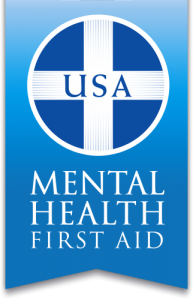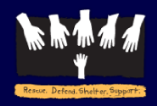First Responders
First Responders refers to a certified emergency, medical, or law enforcement officer who is the first to arrive at an accident or disaster scene.
American Addiction Centers

For firefighters and first responders, maintaining optimum mental wellness is a critical part of remaining active and effective on the job as well as at home. Constant exposure to trauma, life-threatening situations, and the physical strain of working long hours on little to no sleep can negatively impact overall mental health, increasing the vulnerability and risk of substance abuse and addiction among firefighters and first responders.
Building Recovery Together: Addiction Treatment Center for First Responders (FRAT)

The First Responders Addiction Treatment (FRAT) program at Livengrin, founded in 2011, is a unique specialty program that is run by First Responders for First Responders: law enforcement, fire, EMS, corrections, and military personnel (veterans, reservists, active duty). Since its inception, FRAT has treated over 1,000 First Responders and military veterans on our private 44-acre campus.
CIT International
CIT International is a non-profit membership organization whose primary purpose is to facilitate understanding, development and implementation of Crisis Intervention Team CIT programs throughout the United States and in other nations worldwide in order to promote and support collaborative efforts to create and sustain more effective interactions among law enforcement, mental health care providers, individuals with mental illness, their families and communities and also to reduce the stigma of mental illness.
Elements Behavioral Health

People whose jobs put them in the line of danger, tragedy, stress and conflict often experience trauma, which can jeopardize their physical and mental health. We offer a six-day trauma workshop for first responders including police officers, 911 dispatchers, firefighters, deputy sheriffs and military. Developed and led by clinicians trained in treating trauma, this program helps first responders address the taxing, sometimes paralyzing impact of being in danger or witnessing others in danger and teaches them healthy coping skills to deal with these situations going forward.
The Medical Amnesty Initiative

Medical Amnesty legislation saves lives. Each year, thousands of young people tragically lose their lives to alcohol poisoning and other alcohol related unintentional injuries. In situations where a minor is in need of emergency medical attention, studies show the worry is more about getting in to trouble and receiving a Minor in Possession/Consumption of alcohol (MIP) ticket, instead of the well being of that person. As a result, lives are put at risk. Medical Amnesty legislation (911 Good Samaritan, 911 Lifeline) can eliminate these common fears by guaranteeing a limited immunity to the underage and intoxicated individuals who seek help for themselves or another individual who is in need of immediate medical attention.
Mental Health First Aid

Mental Health First Aid is an in-person training that teaches you how to help adults or youth developing a mental illness or in a crisis. Youth MHFA is available to teach parents, family members, caregivers, teachers, school staff, peers, neighbors, health and human services workers, and other caring citizens how to help an adolescent who is experiencing a mental health or addictions challenge or is in crisis.
National Alliance for Drug Endangered Children

The National DEC helps break the cycle of abuse and neglect by empowering practitioners to identify and respond to children living in dangerous drug environments.
The Recovery Centers of America

At Recovery Centers of America (RCA), we strive to be the preferred residential treatment facility for first responders struggling with addiction. Whether you’re an active or former law enforcement officer, firefighter, correctional officer, EMT/paramedic, or veteran––we can help you manage the ripple effects of substance abuse. We can help advocate on your behalf with your union, department, and employee assistance program if you choose to include them in your treatment.
Recovery First: First Responders Addiction Treatment

When most people imagine a first responder, they may imagine an ambulance with medical professionals aboard, a police unit, firefighters, or the Federal Emergency Management Agency (FEMA). Of course, these professionals are first responders, but in the United States, there are dozens more people in career fields considered first response. Some of these careers include animal control officers, air marshals, campus security officers, ATF agents, DEA agents, court officers, park rangers, members of the Red Cross, or members of the military.